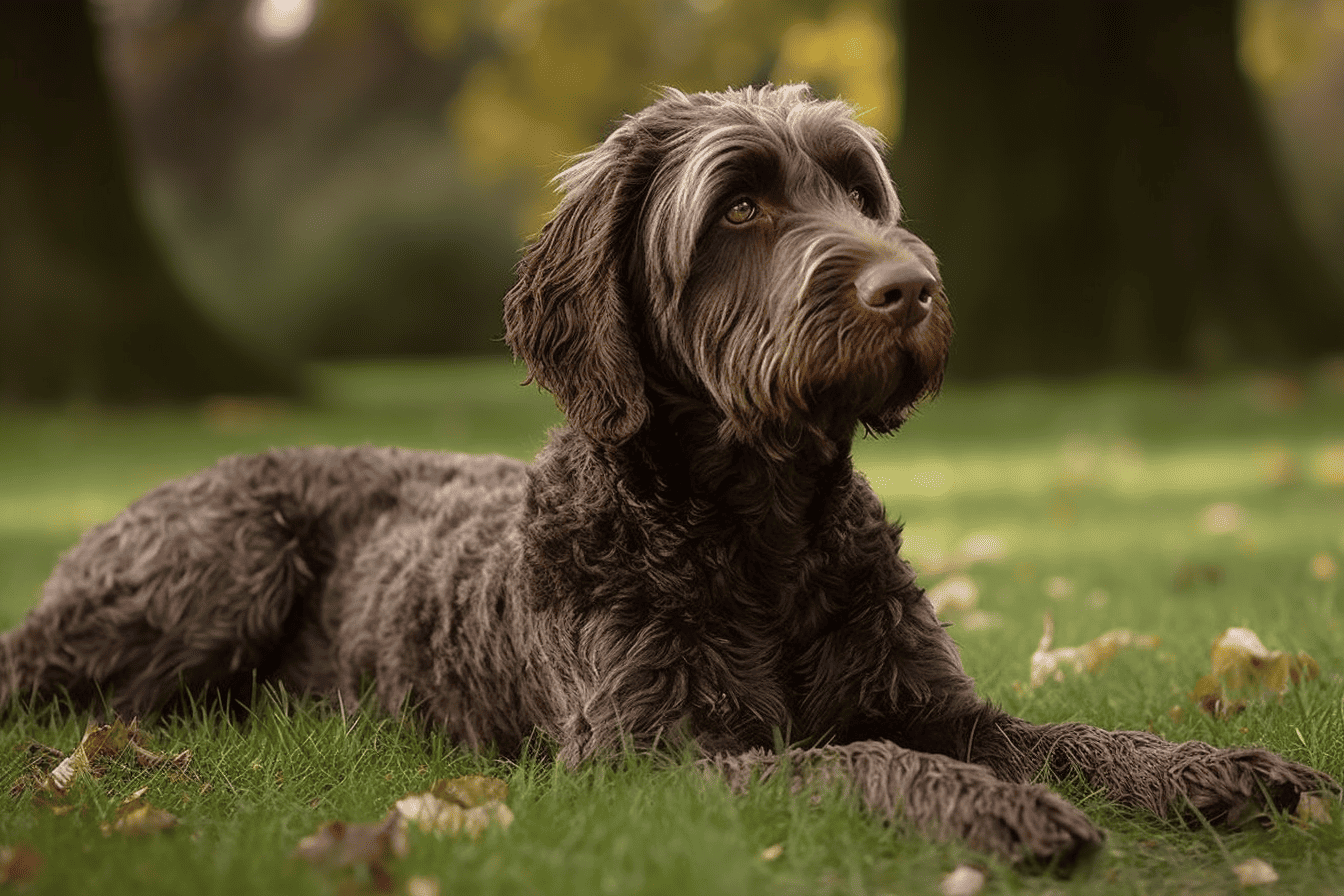
Pudelpointer (Poodle & English Pointer Mix): Photos, Guide, Details, Maintenance & More
Shortcuts
Developed over three decades by combining 11 Standard Poodles (Pudel in German) and 80 Pointers, the Pudelpointer emerged as a versatile gun dog, adept at hunting both in water and on land.
Breed Overview

Height
22-27 inches
Weight
45-70 pounds
Lifespan
12-14 years
Colors
Liver, Chestnut, Brown, Black
Suitable for
Active families, hunters, outdoor enthusiasts
Temperament
Intelligent, versatile, friendly, eager to please, energetic


Height
22-27 inches
Weight
45-70 pounds
Lifespan
12-14 years
Colors
Liver, Chestnut, Brown, Black
Suitable for
Active families, hunters, outdoor enthusiasts
Temperament
Intelligent, versatile, friendly, eager to please, energetic

In 1881, Baron von Zedlitz introduced the world to the Pudelpointer breed, a unique blend of a German Hunting Poodle and an English Pointer. As a passionate breeder of tracking, pointing, and retrieving dogs, his goal was to create a breed that combined the Poodle’s exceptional intelligence with the Pointer’s remarkable tracking abilities. It took some time for him to perfect the breed he had envisioned, but now Pudelpointers are recognized as some of the finest hunting dogs globally. Interestingly, they remain relatively rare in the United States, even as companion dogs rather than hunting partners. Pudelpointers are known for their loyalty, exceptional intelligence, and ease of training, making them outstanding hunters and formidable competitors in agility and obedience contests. Their friendly nature also makes them a wonderful addition to any family. If you’re unfamiliar with the Pudelpointer, the following guide will provide you with all the essential information about this underrated breed.
Characteristics
Energy

Health

Sociability

Trainability

Lifespan


Enjoying this read?
We publish this content for free to generate interest in our Premium members' area. By subscribing, you can ask the writer any questions related to pet care and this article, get access to 100+ Premium Pet Care Guides and go Ad-Free with DogFix Premium for $2.99.
Health Conditions
As remarkable hunting companions, Pudelpointers were designed for robust health and resilience. However, like any breed, they can encounter certain health concerns. Ensuring regular veterinarian visits and choosing a responsible breeder who monitors their dogs’ well-being can help reduce these risks and maintain your Pudelpointer’s optimal health.
Minor Conditions
- Allergies
- Ear Infections
- Eye Problems
- Skin Irritations
- Dental Issues
Serious Conditions
- Hip Dysplasia
- Elbow Dysplasia
- Epilepsy
- Von Willebrand’s Disease
- Bloat (Gastric Dilatation-Volvulus)

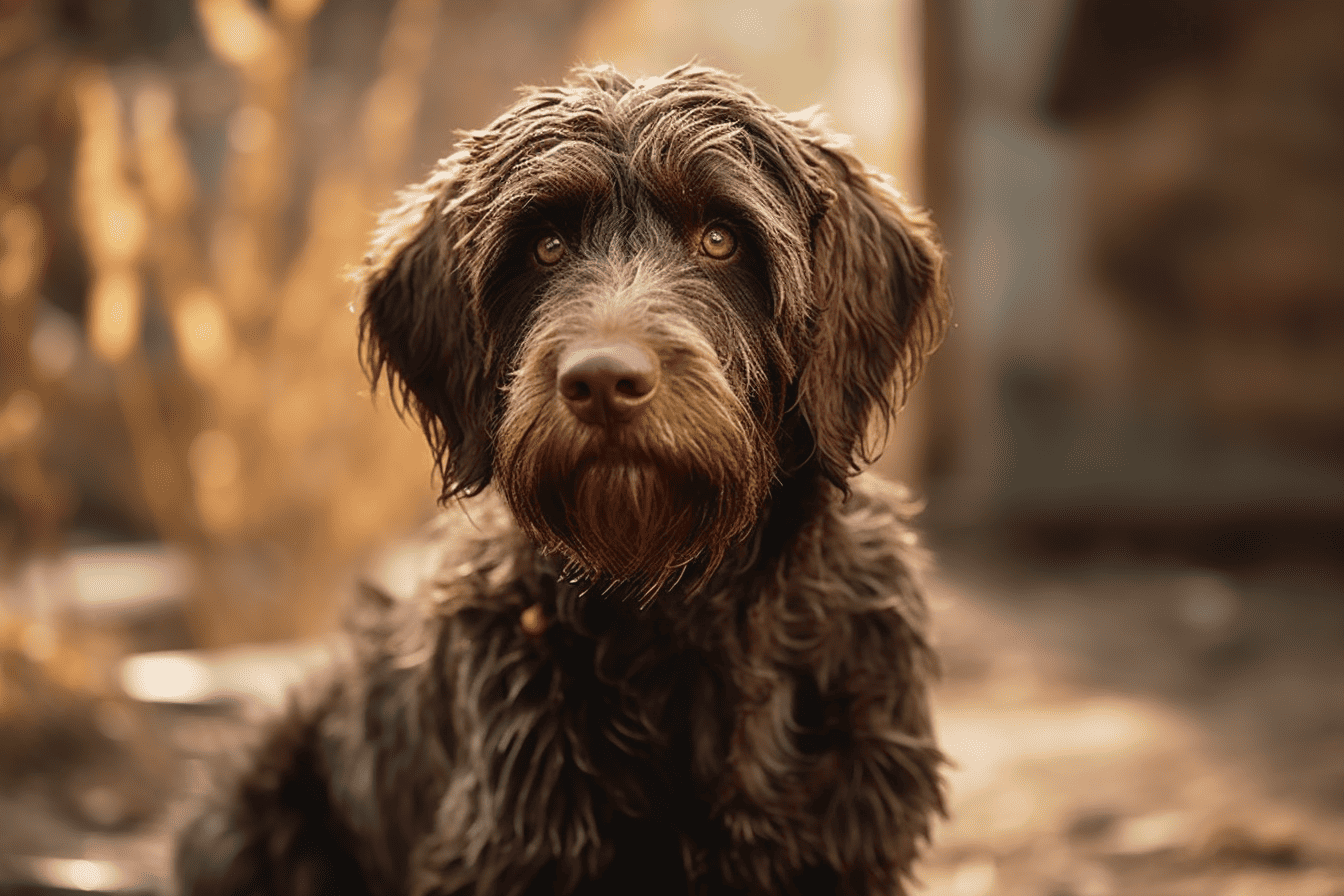
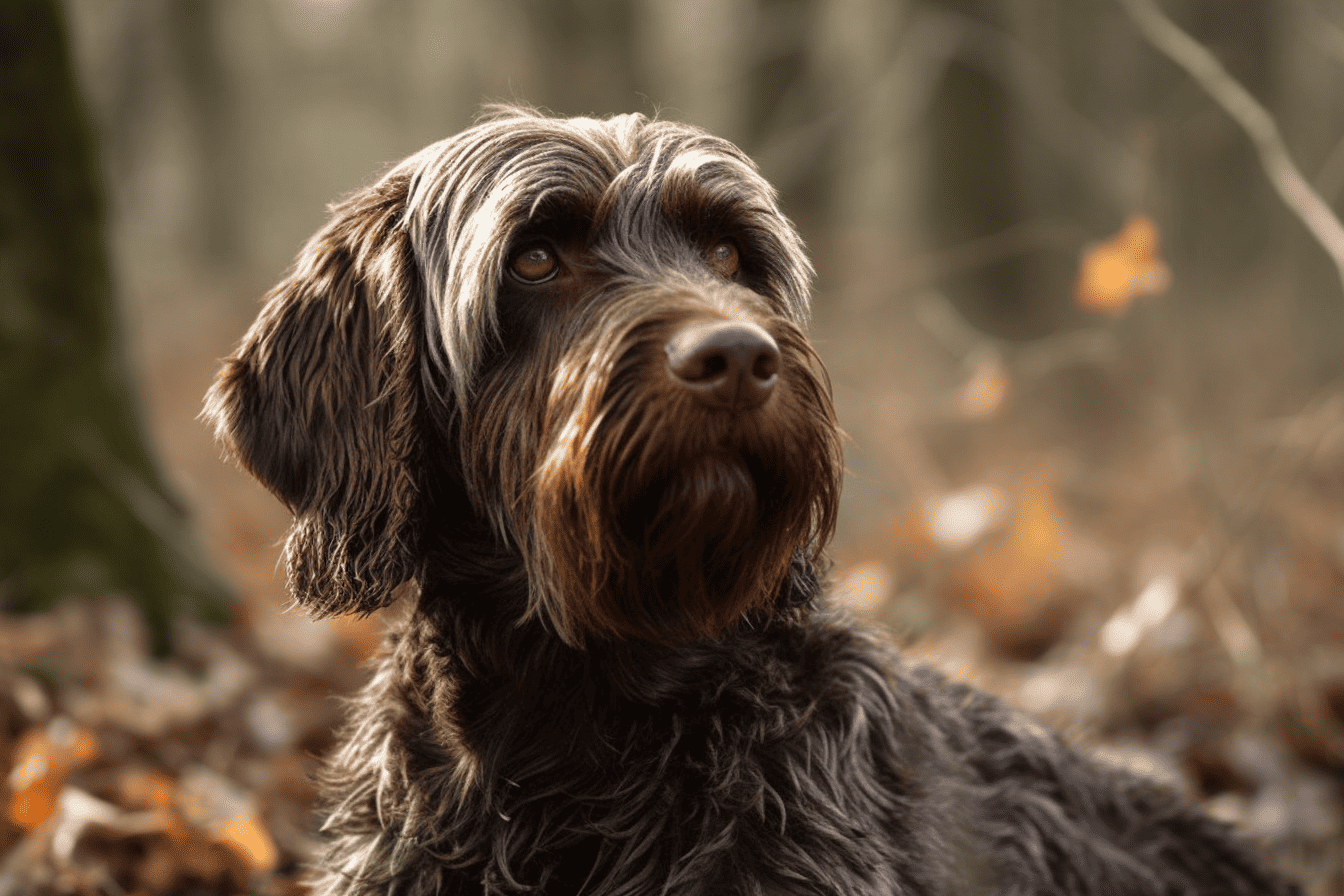
Choosing the Right Pudelpointer Puppy for You
Although not yet officially acknowledged by the American Kennel Club (AKC), Pudelpointers are a rare breed in the United States. As a result, obtaining one can be quite costly. However, this initial investment only covers the breeder’s expenses and does not account for the ongoing costs of caring for your new family member. When you bring a Pudelpointer into your life, you will be rewarded with an intelligent, easily trainable, and loyal companion. These enthusiastic hunting dogs thrive on long walks, plenty of playtime, and make excellent hiking partners.
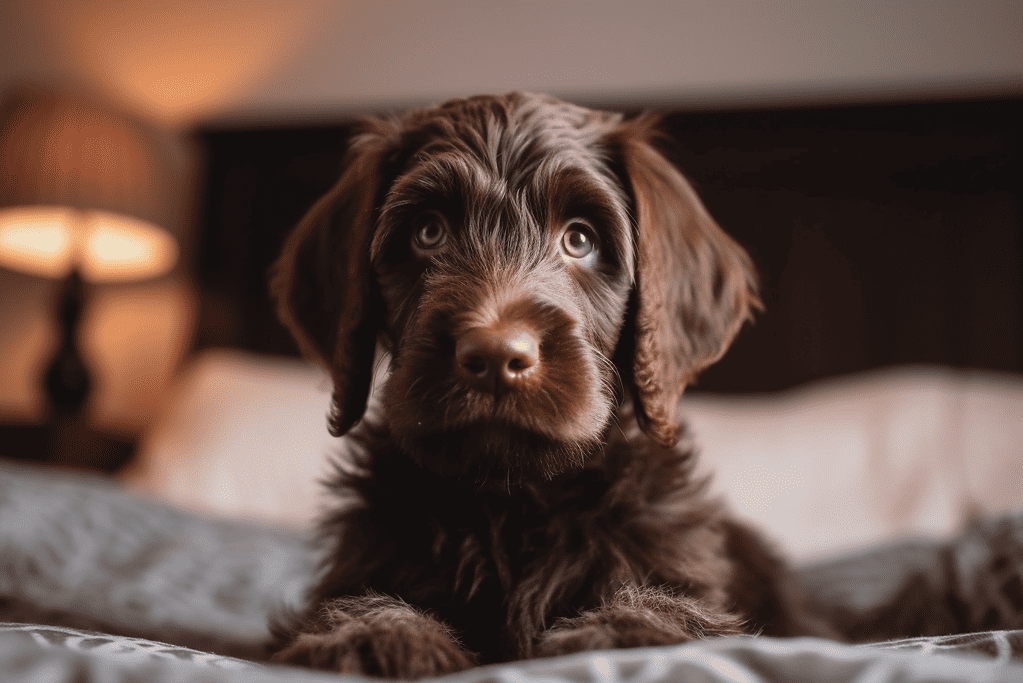
The Pudelpointer’s Temperament and Intelligence Level
As descendants of Poodles, Pudelpointers possess remarkable intelligence and a strong desire to satisfy their owners. These qualities make them highly trainable and exceptional at agility, obedience, and retrieving tasks. Originally bred for courage against firearms and big game, Pudelpointers are versatile hunting companions, not limited to retrieving ducks from ponds.
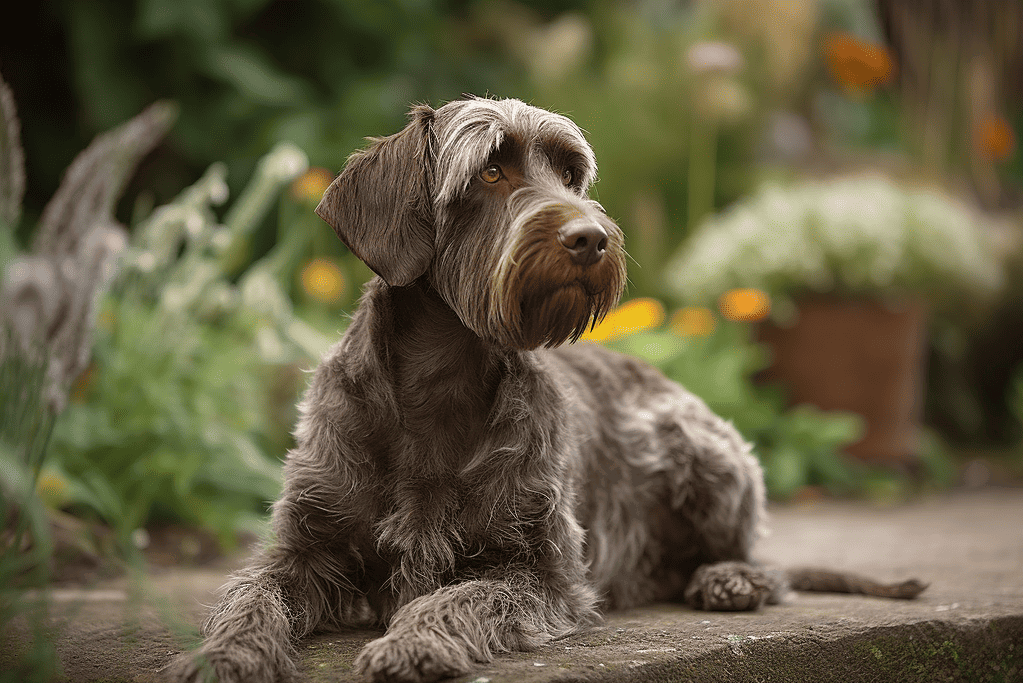
Assessing the Suitability of Pudelpointers for Family Life
When a Pudelpointer returns from a day of hunting, they love nothing more than to snuggle up with their family and enjoy a peaceful evening indoors. These dogs are lively and amiable, making them perfect companions for energetic families and kids. However, it’s advisable to supervise playtime with young children. Although Pudelpointers are gentle and protective, their exuberance could inadvertently cause harm to smaller kids. While these dogs aren’t known for biting, proper socialization is still essential. Their intelligence and devotion to their family make them vigilant watchdogs who won’t hesitate to bark at unfamiliar faces.
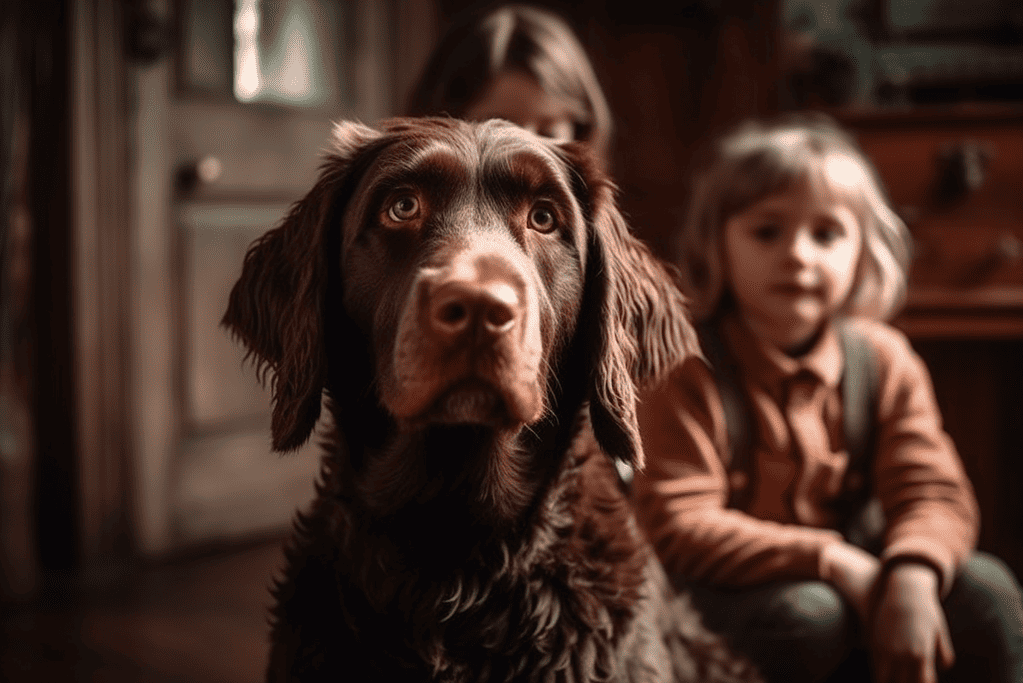
Pudelpointers’ Compatibility with Other Household Pets
Pudelpointers have been specifically bred to possess a strong prey drive, which can lead them to pursue smaller animals. They typically interact well with other dogs of equal or larger size, particularly if raised together. However, smaller pets such as cats may not be compatible companions. While proper socialization can help manage the Pudelpointer’s chasing tendencies, their innate hunting instincts may still be too strong to safely coexist with smaller animals in the household.
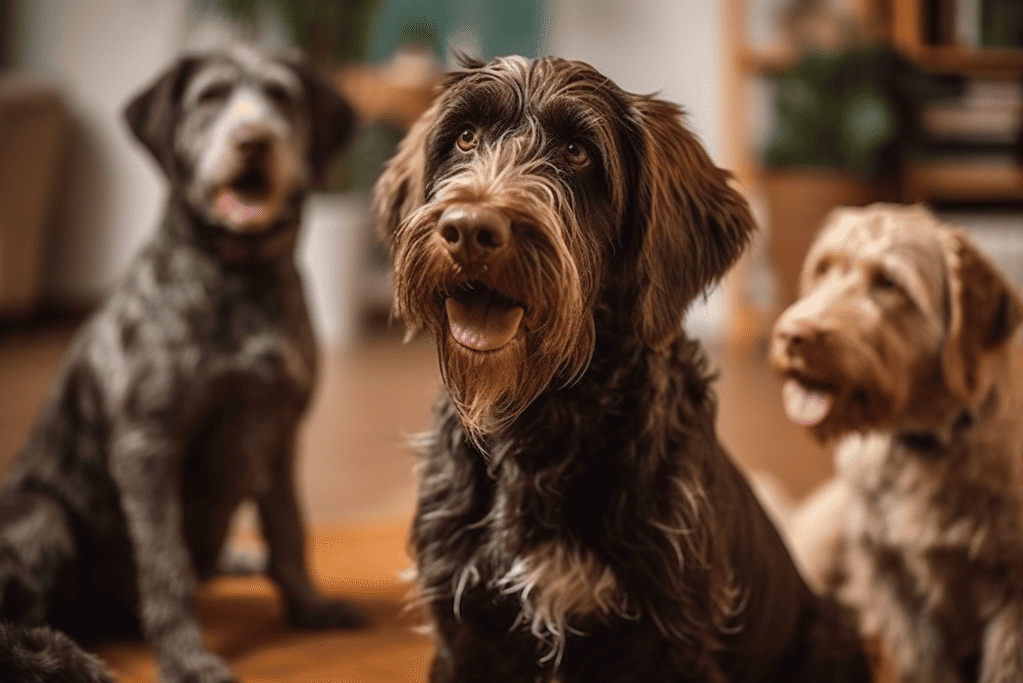
Meeting Your Pudelpointer’s Nutritional Needs
Your Pudelpointer can thrive on either commercial or homemade, high-quality dog food, as long as it fulfills their specific dietary needs. Generally, a Pudelpointer will consume 3-4 cups of food daily, ideally divided into two meals. It’s important to consider your Pudelpointer’s activity level, whether they’re a beloved family pet or an active hunting partner, and adjust their food intake accordingly. Consult with your veterinarian to ensure your Pudelpointer is enjoying balanced meals and maintaining a healthy weight.
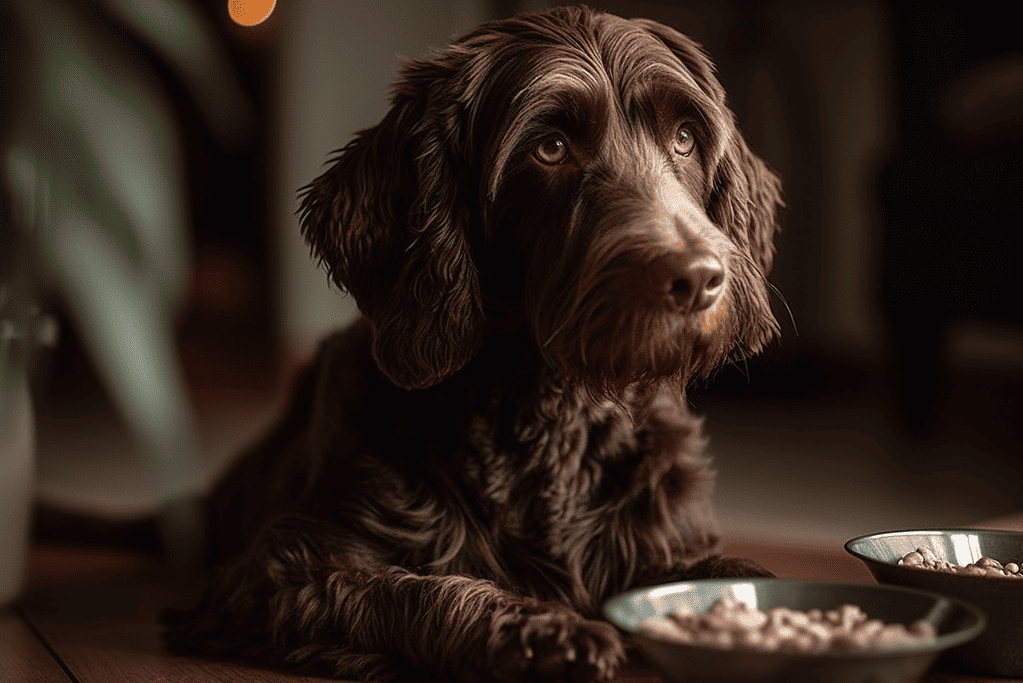
Ensuring Adequate Exercise for Pudelpointers
As with most hunting dogs, the Pudelpointer requires a significant amount of exercise to maintain their high energy levels. While they do settle down after a hunt, they thrive in active households rather than more sedate environments. Even if you don’t use your Pudelpointer for hunting, they’ll eagerly channel their energy into activities like playing fetch in a spacious yard or learning new tricks. Engaging in indoor games, such as hide-and-seek, can also provide mental stimulation, in addition to a minimum of two daily walks.
Participating in agility and obedience competitions can help harness your Pudelpointer’s intelligence and energy. Failing to meet their exercise needs can result in boredom and destructive behaviors, as well as a propensity for weight gain if their activity levels are not maintained.
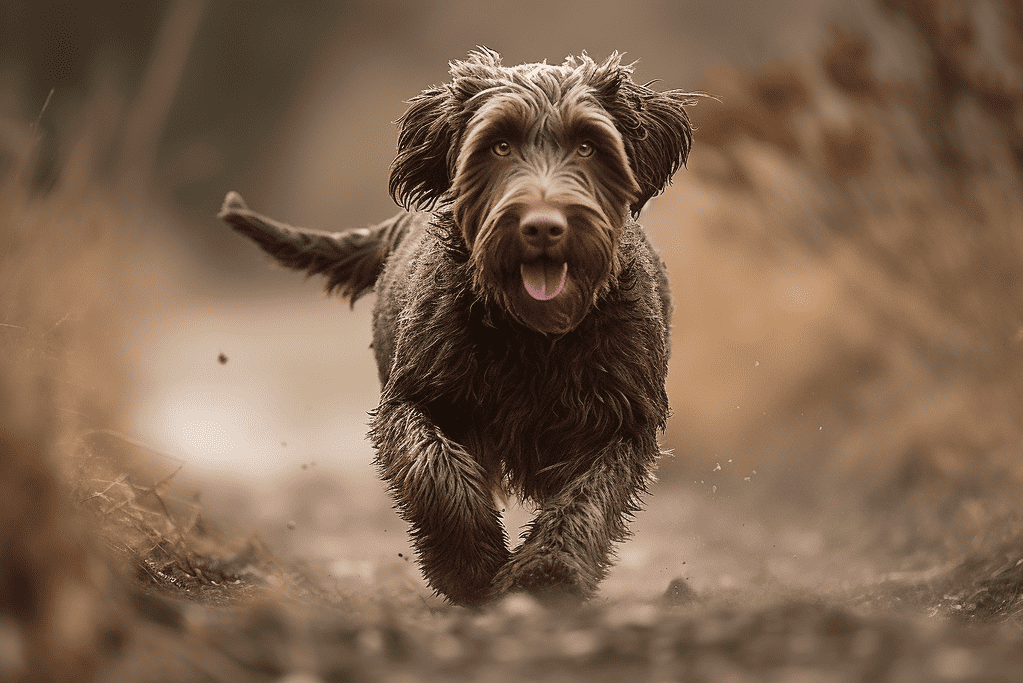
Essential Training Guidelines for Pudelpointers
With their Poodle heritage, Pudelpointers are not only highly intelligent but also eager to please. To make training sessions enjoyable, utilize positive reinforcement along with consistent rewards and commands. Beginning early, particularly with socialization, guarantees that your Pudelpointer can achieve their maximum potential. Leash training is crucial, as Pudelpointers are prone to pulling on the leash and chasing smaller animals they perceive as prey. When letting your dog off the leash during walks, ensure you are in a secure area and have practiced numerous obedience commands.
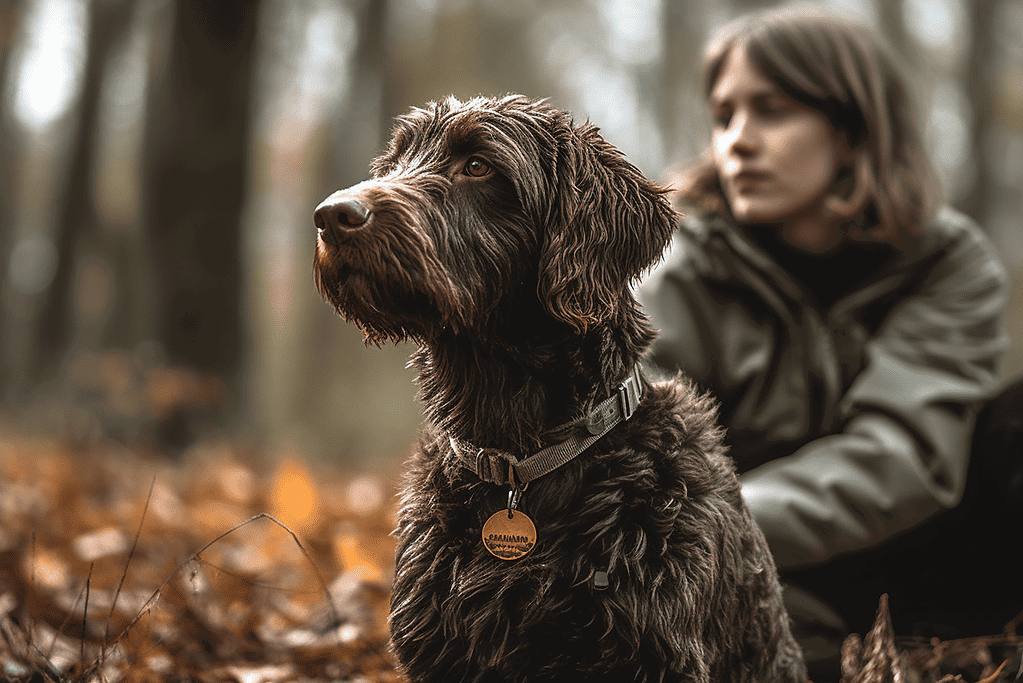
Grooming Your Pudelpointer: A Comprehensive Guide
Being a low-shedding Poodle mix, the Pudelpointer makes an excellent pet for families with allergies, as their fur is known to be hypoallergenic. However, their coats tend to be wiry and dense, necessitating regular grooming sessions once or twice a week using a stiff bristle brush. Additionally, you may want to consider visiting a professional groomer occasionally. Limit baths to when they are truly needed, since over-shampooing can remove the Pudelpointer’s natural oils and cause dry skin. Don’t forget to maintain their nail length, brush their teeth, and clean their ears regularly to prevent infections.
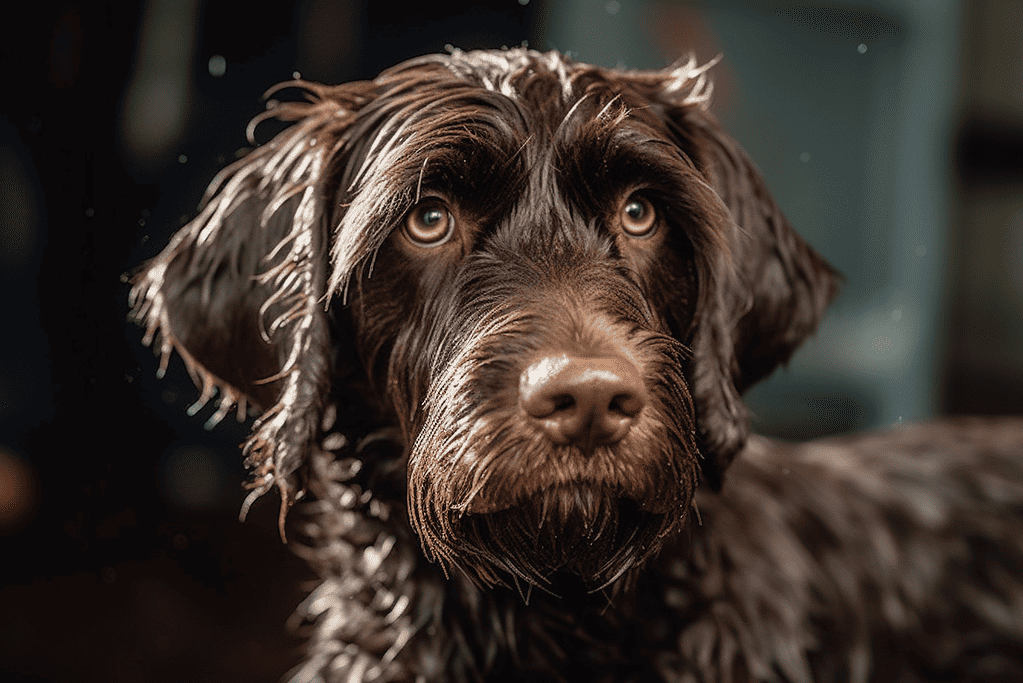
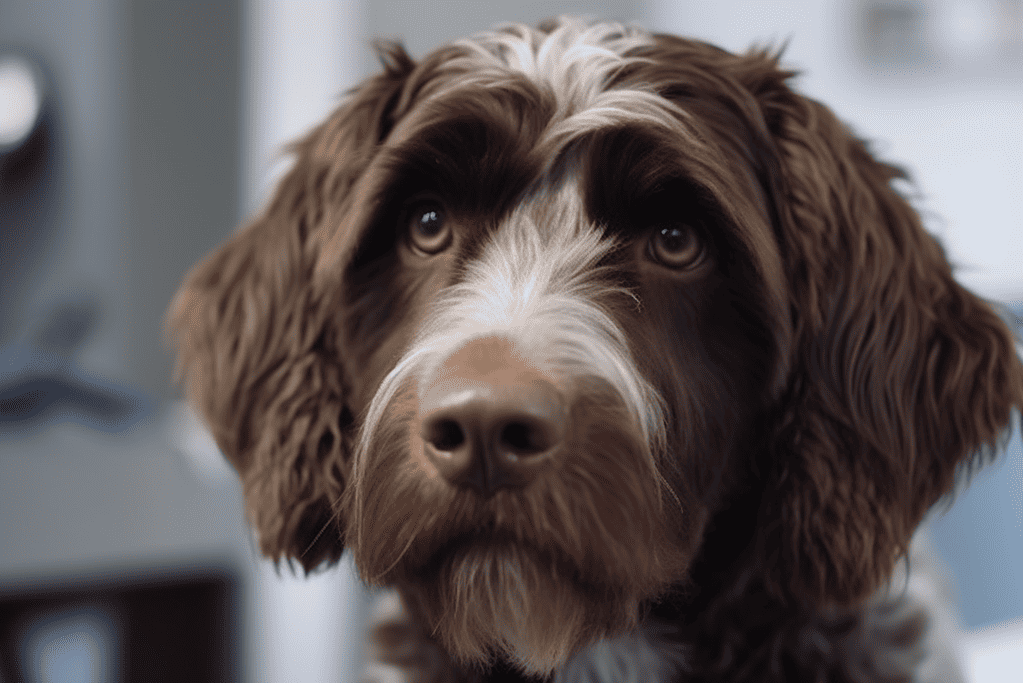
Comparing Male and Female Pudelpointers
Generally, male Pudelpointers are somewhat larger and heavier compared to their female counterparts, and they also exhibit greater energy levels. While female Pudelpointers tend to be more reserved and may challenge your authority, males are usually more exuberant and display their affection more openly. However, it’s important to note that neither gender outshines the other; both male and female Pudelpointers possess unwavering loyalty and are highly proficient in hunting as well as being exceptional family companions.
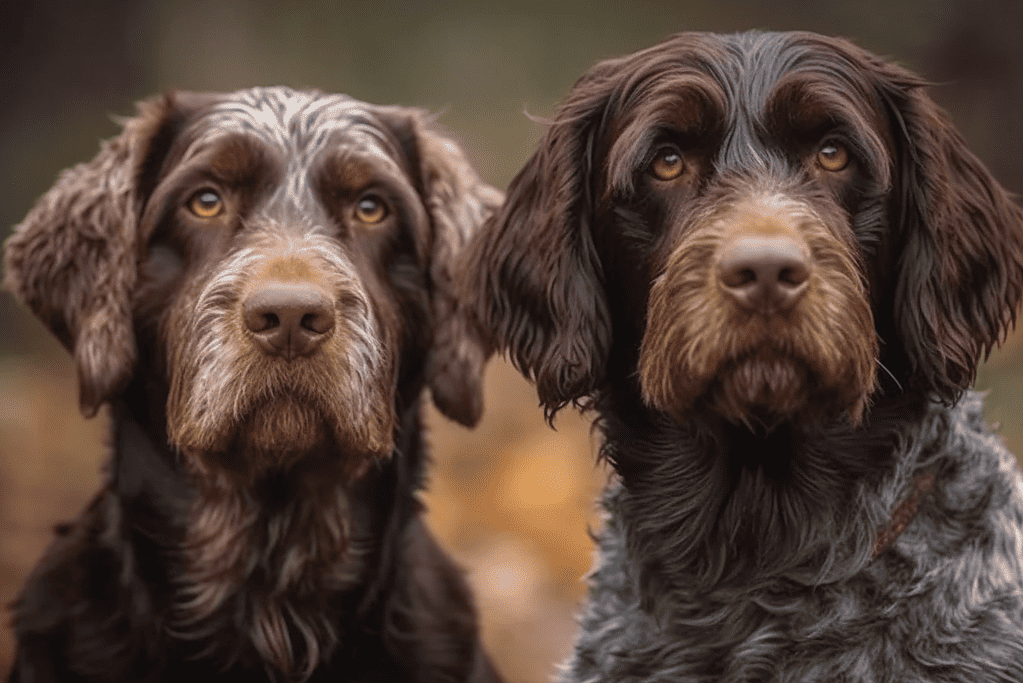
Intriguing Fact #1 About Pudelpointers
Surprisingly, Pudelpointer breeders choose not to pursue official recognition by the AKC. Despite the Pudelpointer’s inclusion in the AKC’s Foundation Stock Service group since 2004, breeders remain determined to keep the breed from becoming officially recognized as a pedigree dog. Their main concern is that the AKC may divide the breed into working and show dogs, ultimately forcing them into a specific appearance. As a result, Pudelpointers could lose their primary purpose as hunting companions and cease to excel as exceptional gun dogs.
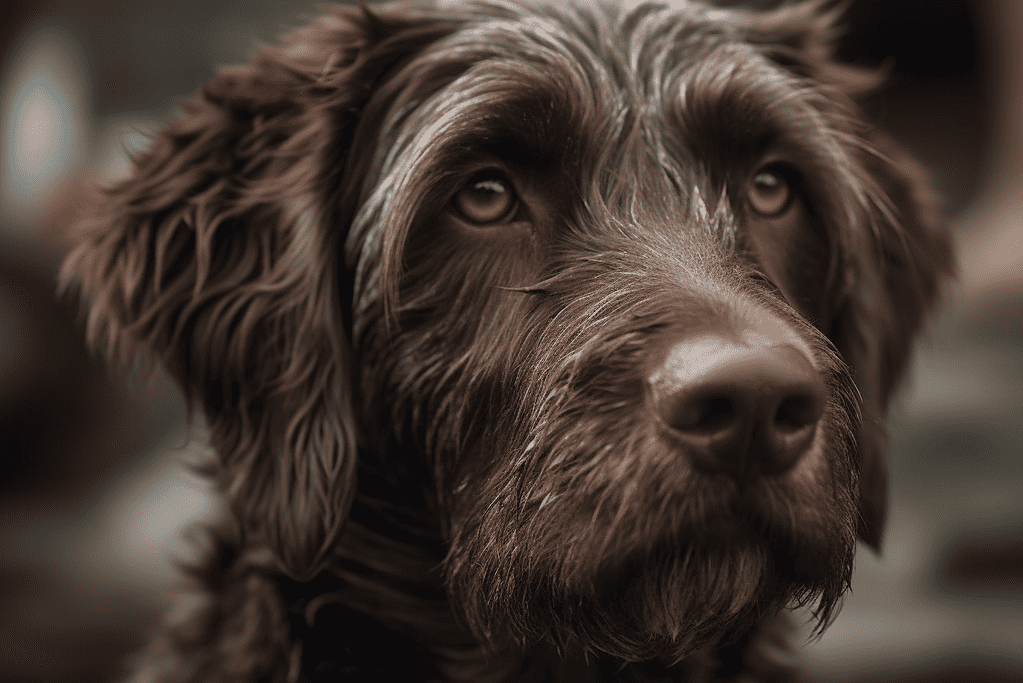
Intriguing Fact #2 About Pudelpointers
The Pudelpointer we know today took three decades to perfect: When Zedlitz initially started breeding Pudelpointers, he didn’t quite grasp the potency of the Poodle’s genetic makeup in comparison to the Pointer’s. His goal was to blend the most desirable qualities of both breeds, but he had to incorporate 80 various Pointer breeds to effectively counterbalance the Poodle’s genes.
After devoting 30 years to his vision, he ultimately triumphed in developing the Pudelpointer. Nowadays, this breed showcases an expertly calibrated combination of the Poodle’s intellect, adaptability, affinity for water, and retrieval skills, as well as the Pointer’s prowess in hunting, pointing, and tracking.
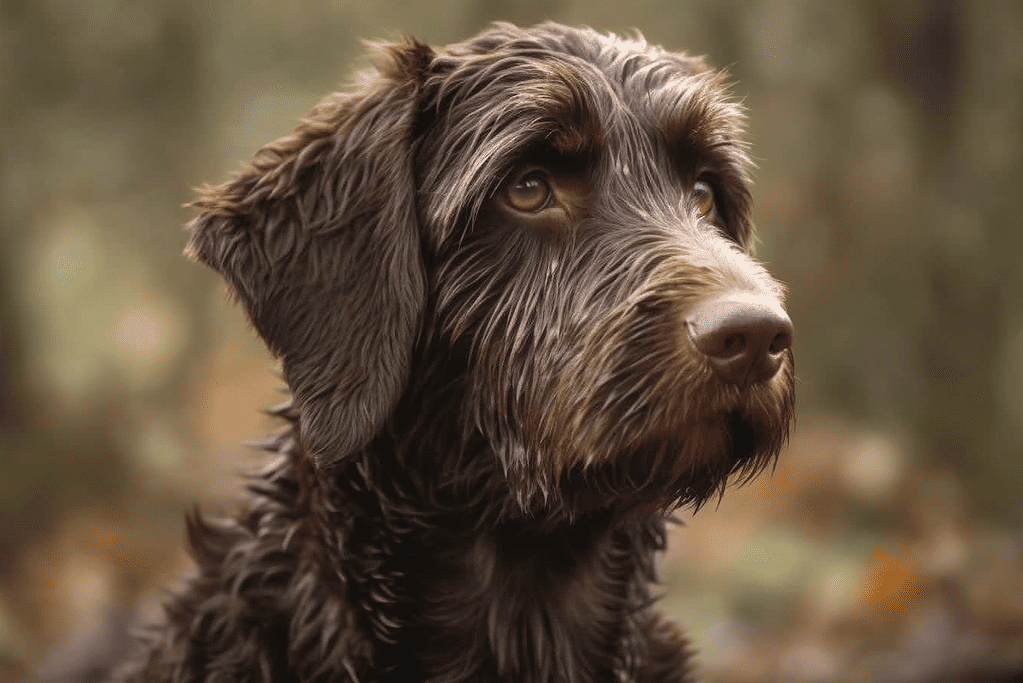
Intriguing Fact #3 About Pudelpointers
As a passionate hunter, the Pudelpointer sets itself apart from other dog breeds: While many breeds are developed primarily for their looks, Pudelpointer breeders remain dedicated to preserving the breed’s original purpose. Rather than striving for a specific appearance, these dogs are bred for optimal hunting performance, even requiring the completion of various hunting tests before being considered for breeding.
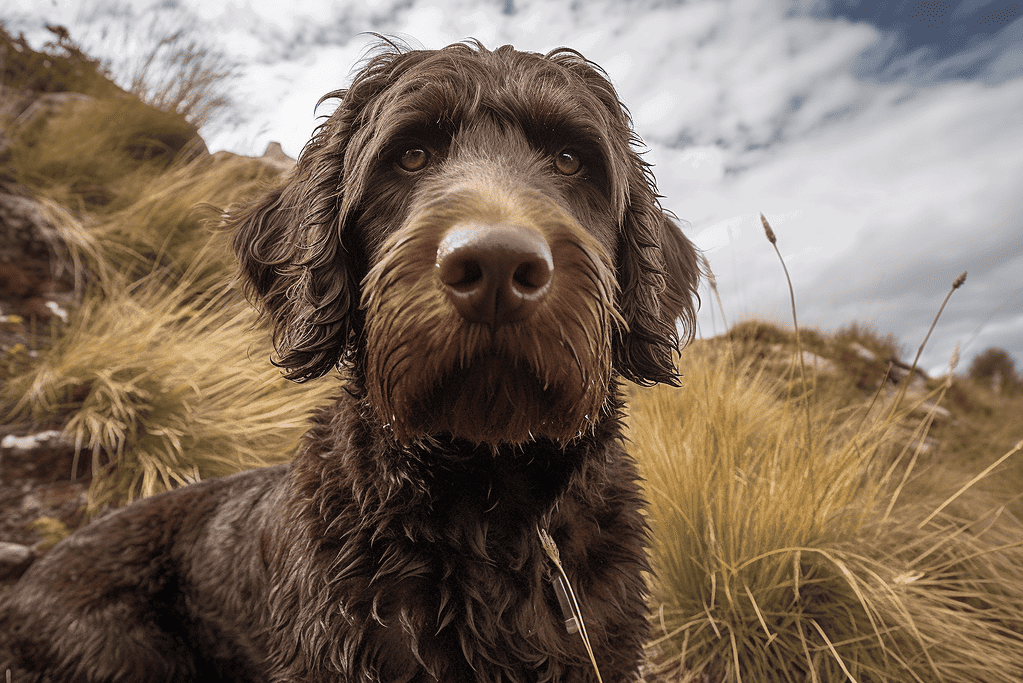
Concluding Thoughts on the Pudelpointer Breed
Whether you’re considering a Pudelpointer as a hunting partner or a family companion, they are known for their loyalty and friendliness. Always eager to please, they will joyfully accompany you on wilderness adventures and then contentedly snuggle at your feet after a long day.
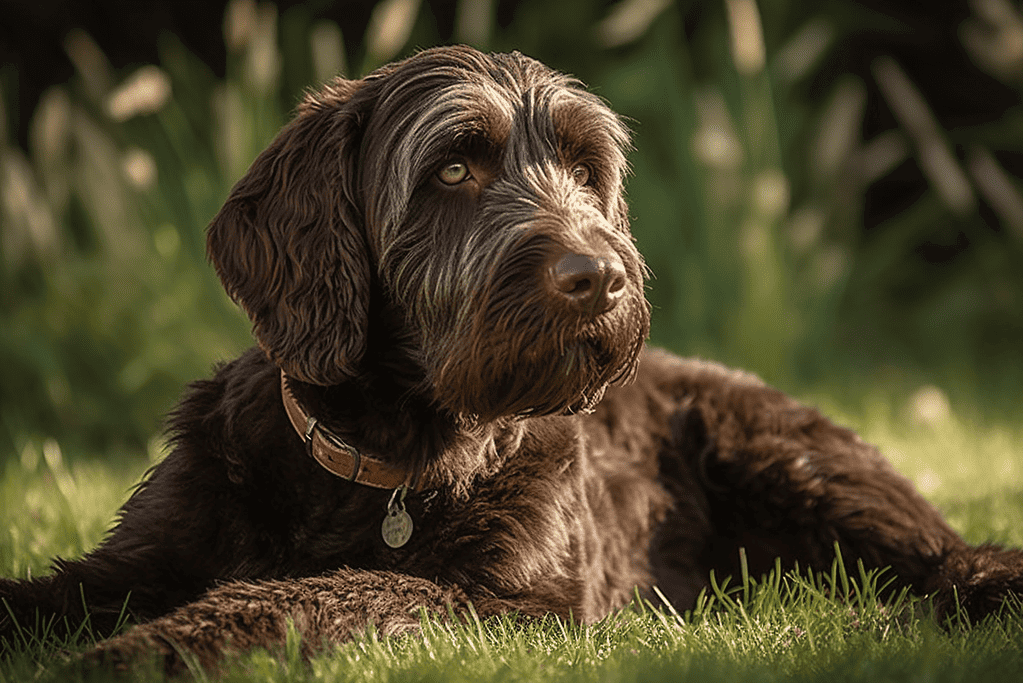

Didn’t find what you need? Use the search!
Search our database of over hundreds of posts with up-to-date information from our experts and veterinarians.

